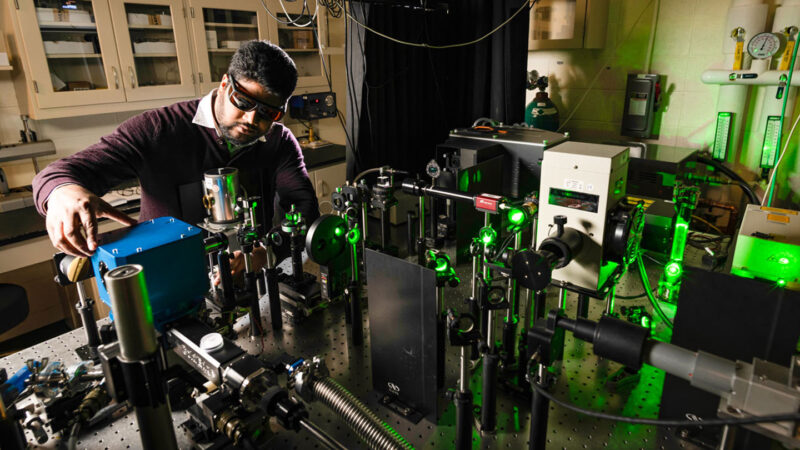A controversial room-temperature superconductor result has been retracted

A stunning claim of a room-temperature superconductor that grabbed headlines has fizzled. The paper was retracted November 7 from the journal Nature, making for a trio of high-profile retractions for physicist Ranga Dias of the University of Rochester.
The retraction is no surprise to the scientific community, many of whom had expressed hefty skepticism about Dias’ work, following the earlier retractions and many other researchers’ failures to reproduce Dias’ results (SN: 9/5/23).
“It was about time,” says theoretical physicist Lilia Boeri of the Sapienza University of Rome.
In March, Dias and colleagues reported in Nature that a compound of lutetium, hydrogen and nitrogen was a superconductor at room temperature (SN: 3/7/23). The practical use of most superconductors is limited by the need to cool them to low temperatures, or squeeze them to extremely high pressures. Dias’ claimed material required neither of these conditions, a feat that could have revolutionary implications for electronics if correct.
Eight of the paper’s 11 coauthors requested the retraction, stating that “the published paper does not accurately reflect the provenance of the investigated materials, the experimental measurements undertaken and the data-processing protocols applied.”
Compared to the previous retractions, “this is much more worrying,” Boeri says. “This is not just somebody who is doing some honest mistakes.”
In addition to the coauthors’ concerns, outside researchers had raised questions about the reliability of the data, the retraction note states.
A statement provided by Dias reads, in part, “Ranga Dias refutes any allegations of research misconduct and remains steadfast in supporting all the scientific conclusions presented in the paper.”
An earlier claim of a room-temperature superconductor by Dias and colleagues was retracted from Nature in September 2022 (SN: 10/3/22). And one of Dias’ papers on a different topic, published in Physical Review Letters, was retracted in August.
Physicist Jorge Hirsch of the University of California, San Diego, who raised concerns about Dias’ work leading to the September 2022 retraction, cites a lack of data availability as an underlying issue in the field. “It’s a very serious problem,” Hirsch says. “In the case of Dias and the University of Rochester, when I contacted them and said there’s an obligation for researchers to release underlying data, they didn’t pay any attention to me.”
Despite the shadow cast on the Dias group’s result, at least one researcher believes the superconductor could still be real. Materials chemist Russell Hemley of the University of Illinois Chicago, who previously was part of a team that discovered a high-temperature superconductor of lanthanum and hydrogen, was one of the few scientists to claim a confirmation of Dias’ result, using a sample created in collaboration with Dias’ group (SN: 9/10/18).
“Our own measurements on the material, carried out independently in our lab, show the same signatures of very high-temperature superconductivity that we found for the lanthanum hydride,” Hemley says. While other researchers have questioned whether Hemley and colleagues’ reported results convincingly confirm superconductivity, Hemley has defended their findings and says he is confident that additional groups will eventually replicate the result too.
In the meantime, Dias’ work is under scrutiny by his university. In a statement released November 7, University of Rochester officials noted that the school “takes very seriously the recent concerns” and “has a comprehensive investigation underway into questions raised about the integrity of data across multiple papers led by Professor Dias.”
Astronomy writer James Riordon contributed to this article.
For all the latest Science News Click Here
For the latest news and updates, follow us on Google News.

